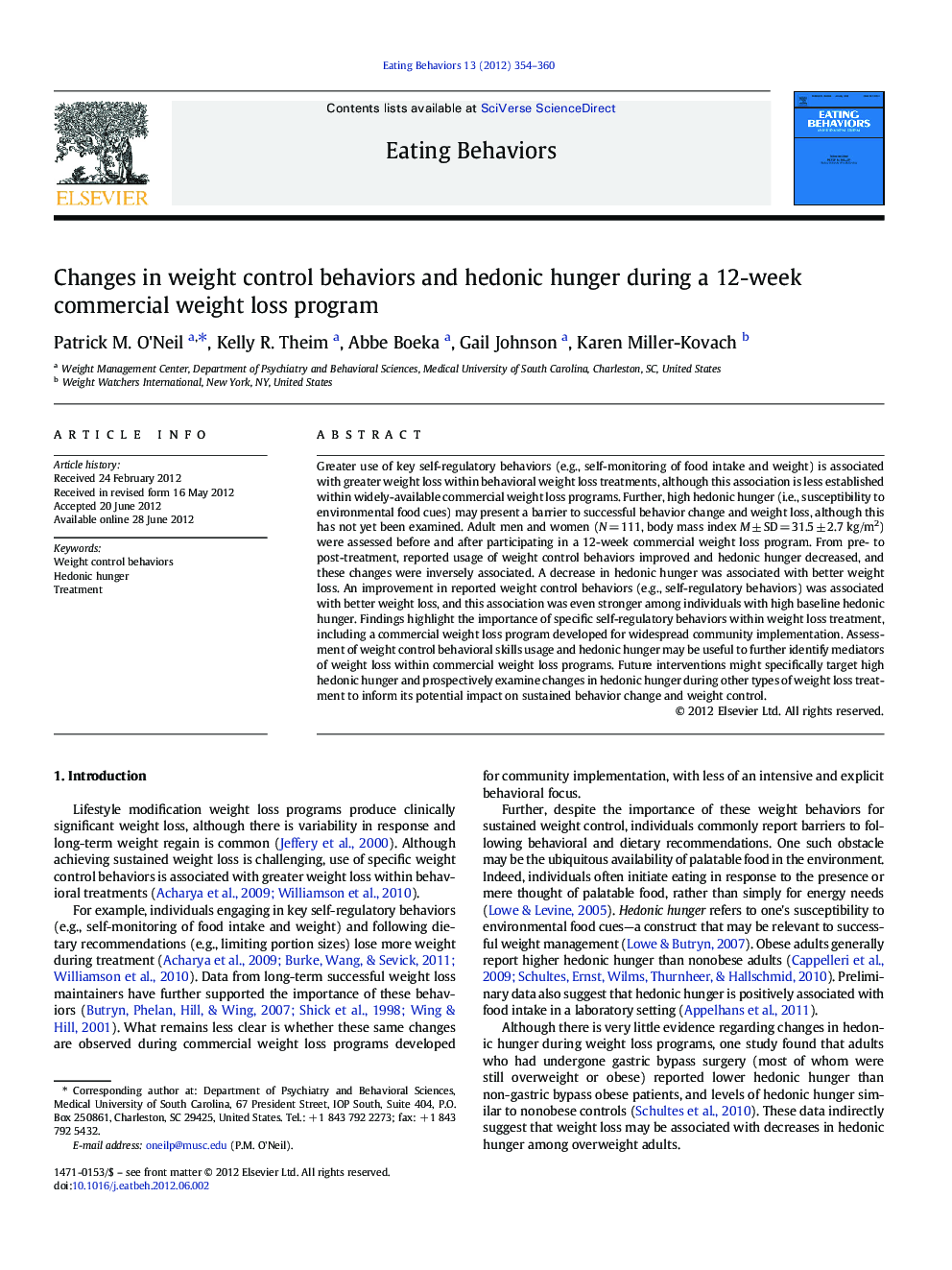| Article ID | Journal | Published Year | Pages | File Type |
|---|---|---|---|---|
| 906662 | Eating Behaviors | 2012 | 7 Pages |
Greater use of key self-regulatory behaviors (e.g., self-monitoring of food intake and weight) is associated with greater weight loss within behavioral weight loss treatments, although this association is less established within widely-available commercial weight loss programs. Further, high hedonic hunger (i.e., susceptibility to environmental food cues) may present a barrier to successful behavior change and weight loss, although this has not yet been examined. Adult men and women (N = 111, body mass index M ± SD = 31.5 ± 2.7 kg/m2) were assessed before and after participating in a 12-week commercial weight loss program. From pre- to post-treatment, reported usage of weight control behaviors improved and hedonic hunger decreased, and these changes were inversely associated. A decrease in hedonic hunger was associated with better weight loss. An improvement in reported weight control behaviors (e.g., self-regulatory behaviors) was associated with better weight loss, and this association was even stronger among individuals with high baseline hedonic hunger. Findings highlight the importance of specific self-regulatory behaviors within weight loss treatment, including a commercial weight loss program developed for widespread community implementation. Assessment of weight control behavioral skills usage and hedonic hunger may be useful to further identify mediators of weight loss within commercial weight loss programs. Future interventions might specifically target high hedonic hunger and prospectively examine changes in hedonic hunger during other types of weight loss treatment to inform its potential impact on sustained behavior change and weight control.
► We examined data from a 12-week weight loss trial following a commercial format. ► Weight control behavior usage improved and was associated with greater weight loss. ► Hedonic hunger decreased and reductions were related to greater weight loss. ► Baseline hedonic hunger moderated the relation of behavior change to weight loss.
